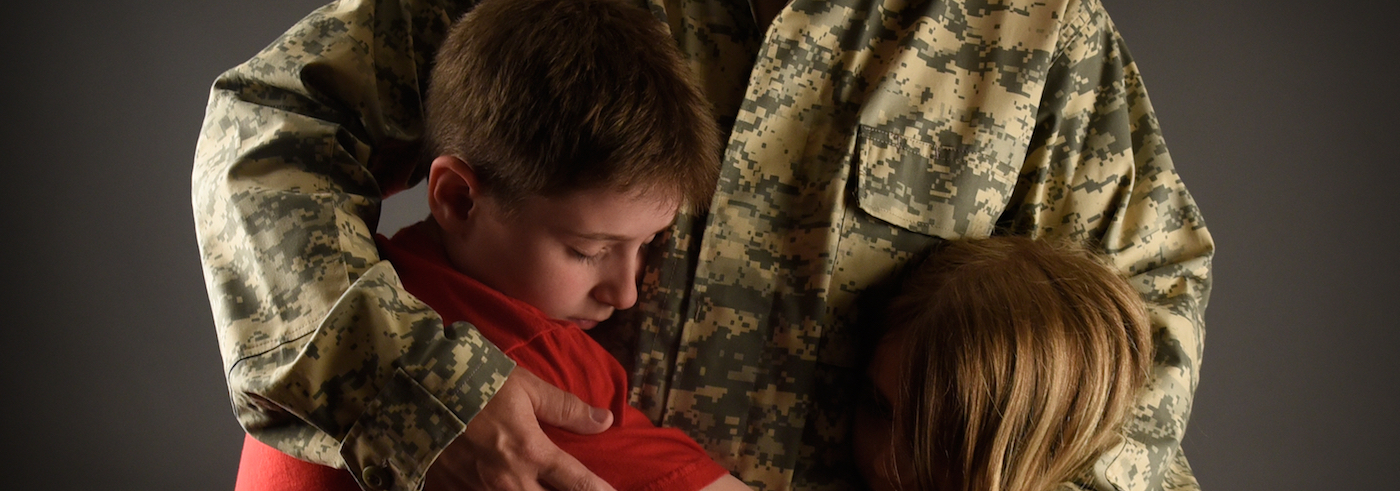Ministering to Military Families
Inside advice on reaching out and offering support
Our nation’s military makes up a unique segment of our population. While only 1 in 250 Americans are active duty service members (working full time for the military), when you include those serving in the reserve or National Guard, as well as the family members of enlisted men and women, military life affects many people in our churches and communities.
I recently spoke with Army Chief Warrant Officer Joseph Jackson. He and his wife, Lisa, are part of the congregation at Liberty Church (Assemblies of God) in Woodbury, Minnesota, but they are currently stationed in Grafenwohr, Germany, where Joseph serves as a Blackhawk instructor pilot.
As dedicated believers, the Jacksons have been great personal soul winners and lay ministers, serving wherever the Lord has planted them.
NORTHUP: What are some unique challenges facing military families?
JOSEPH JACKSON: The military is an amazing cross-section of American society — and, in many ways, it is its own people group. There is incredible diversity: racial, ethnic, education, socioeconomic, to name a few. Whatever their reasons were for joining, what they have in common is their service.
One of the unique challenges is the continual uprooting from their homes and even their country. Because of this, they have to learn to make friends fast, and be willing to go deep fast. These are your people; you have to learn to trust. You worship together, live together, do birthdays and activities together. You have to make the best of the community you are in, and it can take time to figure that out.
Another huge challenge for families is repeated separation. This can be due to deployment, but also for ongoing training, and it can last anywhere from several weeks to several months. This impacts reservists and National Guard as well.
People are hurting when their loved one is preparing to leave, or is gone, or has just come back. At every stage, it’s a struggle for everyone involved.“Churches must be intentional about understanding the culture and the specific challenges.”
— Joseph Jackson
What can churches do to help?
There are three groups you’re ministering to: the service member, the spouse and the children. There are great incentives to marriage, so many people marry at a young age.
They may not even realize what they are looking for, but they are craving mentorship and community. This presents a great opportunity for churches to love and support them, especially if there is a base in their community. But they must be intentional about understanding the culture and the specific challenges.
When a family has recently relocated to your community, they are looking for relationships. They may not have a long time, so they want to jump in quickly. Let them in. Make it easy for people to volunteer without jumping through hoops.
One church we attended wanted us to become members before we could volunteer. But service members feel a real sense of duty, so they may still be members of their home church, hanging on to some semblance of roots. They are living a transient life, so don’t make them pull up their roots just so they can be involved.
I can’t overemphasize how important family ministry is to this group. Mothers’ day out, marriage-focused small groups, and a strong kids’ ministry are great things that meet real needs in military families.
Because of the unpredictable nature of their work schedule, the service member may not be able to attend as regularly as the family. That doesn’t mean they don’t want to serve where they can. They are doers and fixers. They may not be able to volunteer on Sundays, but they could help with things like grounds maintenance as their schedule allows.
How can Christians continue supporting military friends and family members after they deploy to another place?
Even though we have Facebook and social media, it’s especially challenging when stationed overseas. A thumbs-up is not the same as reaching out and saying, “I’m thinking about you. I’m praying for you.” It can mean so much. Listen to their struggles. Hear what they’re going through. Keep in touch.
Any final thoughts?
Hold them loosely, having a heart for our military personnel and their families. Understand that they’re not going to be there long, but in that short time, they probably want to go deep. They will remember the impact you made on their life.
Influence Magazine & The Healthy Church Network
© 2025 Assemblies of God

